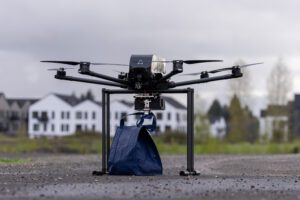 DJI, the global leader in civilian drones and innovative camera technology, today introduces the Power ...
DJI, the global leader in civilian drones and innovative camera technology, today introduces the Power ...DJI Energizes Your World with New Portable Power Stations

 DJI, the global leader in civilian drones and innovative camera technology, today introduces the Power ...
DJI, the global leader in civilian drones and innovative camera technology, today introduces the Power ...











